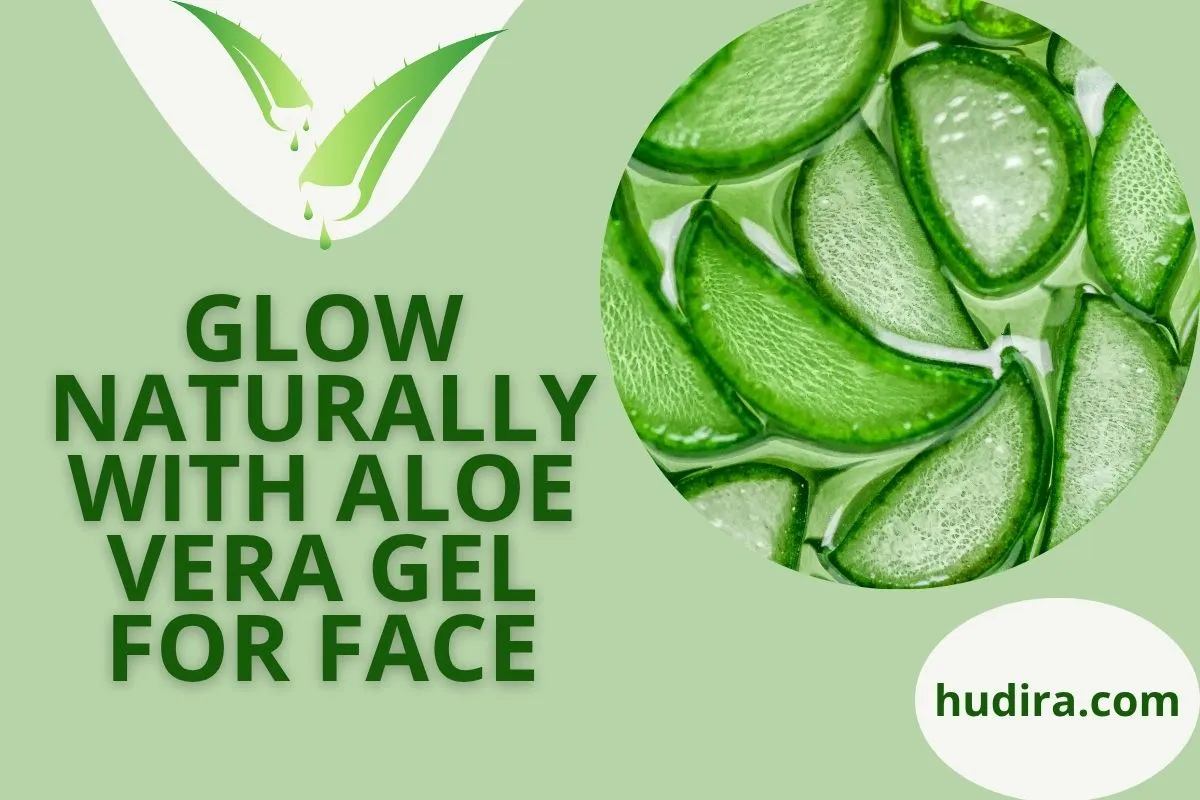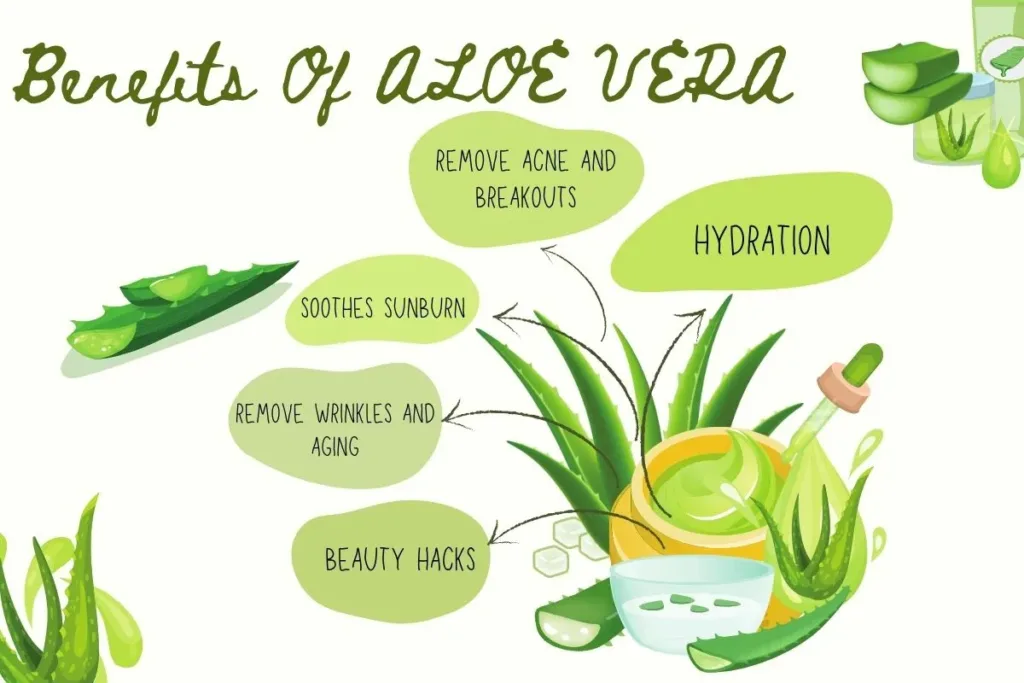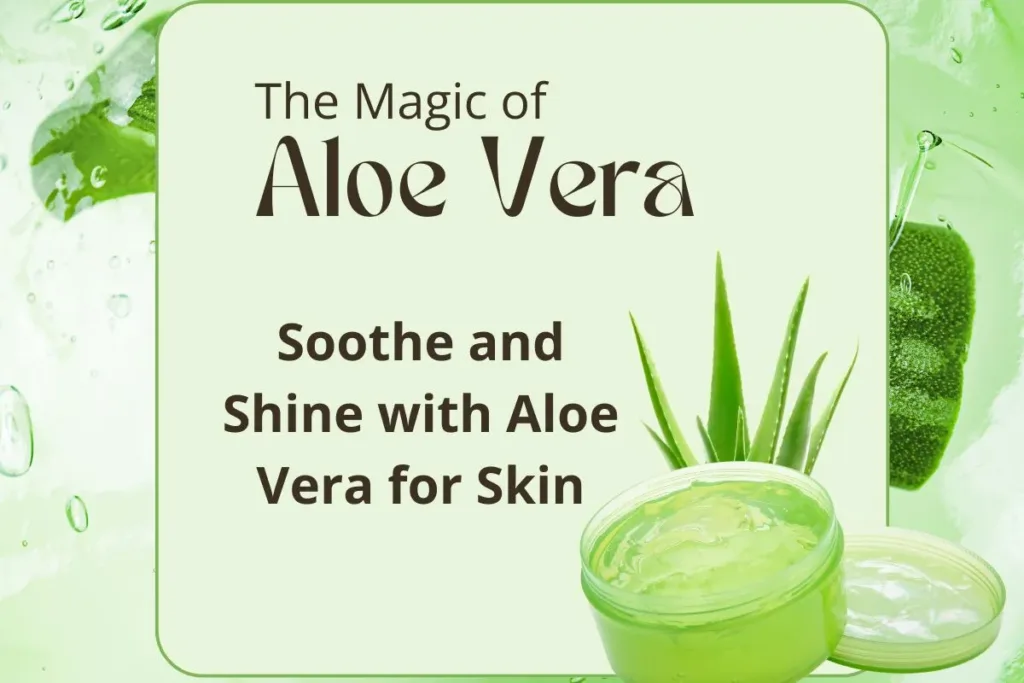No products in the cart.

If your skin feels parched, inflamed, or simply tired, nature has a miracle solution, aloe vera gel for face. This time-tested botanical remedy has been cherished for centuries for its ability to soothe, hydrate, and restore the skin gently yet effectively. Whether you’re dealing with dryness, acne, or post-sun irritation, aloe vera for skin offers the kind of deep, lasting nourishment that synthetic creams often fail to deliver.
But what makes this humble green plant so powerful? Beneath its spiny leaves lies a gel enriched with vitamins, enzymes, and antioxidants that penetrate deeply, replenish moisture, and stimulate regeneration. The real question is: how does it all work and why do modern dermatologists, natural beauty enthusiasts, and skincare brands alike swear by it?
Let’s explore the science, the secrets, and the transformative benefits of aloe vera on skin and why you’ll want to make it a staple in your daily skincare ritual.
Aloe Vera Gel for Face: A Natural Elixir
The translucent gel inside aloe vera leaves is often misunderstood as just a cooling or soothing agent but in reality, it’s a skin-saving cocktail of nutrients that offers deep healing and hydration. This gel is composed of nearly 99% water, yet it’s incredibly potent due to the 75+ active compounds it contains—including vitamins A, C, and E, enzymes, amino acids, minerals like zinc and magnesium, and natural sugars known as polysaccharides.
These components work together to nourish the skin at a cellular level. When applied topically, aloe vera gel for face doesn’t just sit on the surface. Its unique molecular structure allows it to penetrate up to three layers deep, making it highly effective for both hydrating the skin and promoting faster healing from common skin concerns.
Key Benefits of Aloe Vera for Skin
1. Hydration Boost
Aloe vera acts as a natural humectant, meaning it draws moisture from the environment and binds it to your skin. This makes it perfect for anyone suffering from dryness or dullness. It hydrates without making the skin greasy, which is why it’s often featured in aloe vera skin care products for all skin types, including oily and acne-prone.
2. Anti-inflammatory Power
Thanks to its bradykinase enzymes and plant sterols, aloe vera helps reduce inflammation, redness, and puffiness. It soothes skin that’s been stressed by acne, sun exposure, shaving, or allergic reactions. This makes it ideal for sensitive skin or reactive skin types that need extra care.
3. Healing and Regeneration
One of the lesser-known but most powerful benefits of aloe vera on skin is its ability to accelerate wound healing. Compounds like glucomannans and gibberellins stimulate fibroblast activity and boost collagen production, helping your skin repair itself more quickly after minor burns, cuts, or even acne lesions. Over time, this may also help improve skin texture and fade post-acne marks.
4. Non-Comedogenic & Lightweight
For those with oily or acne-prone skin, finding a moisturizer that hydrates without clogging pores is a challenge. That’s where aloe shines. It’s non-comedogenic, lightweight, and water-based—making it ideal as a daily hydrator or primer under makeup. It won’t aggravate acne or blackheads but will deliver calm, breathable moisture.
The Science Behind Aloe Vera Hydrating Power
When we talk about aloe vera hydrating the skin, it’s not just about surface moisture. The gel contains polysaccharides, especially acemannan, which penetrate deeply, improve skin elasticity, and enhance moisture retention.
These humectant molecules bind water to your skin, plumping it up and reducing the appearance of fine lines. Combined with lignins that enhance penetration, aloe ensures active ingredients reach the deeper layers of your skin.

Benefits of Aloe Vera on Skin: Condition by Condition
Aloe vera is not just a moisturizer—it’s a multi-benefit skincare hero that adapts to your skin’s needs. Whether you’re looking to calm inflammation, combat dryness, or reduce signs of aging, aloe vera gel for face delivers gentle yet powerful support. Below is a deep dive into the benefits of aloe vera on skin, based on modern science and centuries of traditional use.
1. Dryness & Dehydration
Dehydrated skin feels tight, flaky, and dull—but aloe changes that quickly.
How it works: Aloe vera is a natural humectant, meaning it draws water from the environment and holds it in your skin. The presence of polysaccharides (especially acemannan) creates a protective barrier that locks in moisture without suffocating pores. Unlike heavy creams, aloe for face hydrates lightly and deeply, making it perfect even for humid climates.
Bonus: Daily use of aloe vera skin care products improves the skin’s water retention ability over time, helping prevent trans-epidermal water loss (TEWL) and reinforcing the skin barrier.
2. Acne & Breakouts
Acne is not just about oil—inflammation and bacteria play major roles. Aloe vera tackles all three.
How it works: Thanks to its salicylic acid content, aloe naturally exfoliates dead skin cells that clog pores. It also contains saponins and gibberellins that have antibacterial effects, reducing acne-causing bacteria. On top of that, its anti-inflammatory enzymes calm redness and swelling.
Result: You get fewer breakouts, less irritation, and a visibly calmer complexion. It also helps fade post-acne marks, making aloe vera gel for face a gentle alternative to harsh acne treatments.
3. Sunburn & Heat Rash Relief
Overexposure to the sun damages skin, causing burns, peeling, and inflammation. Enter aloe—the ultimate after-sun healer.
How it works: Aloe vera contains bradykinase, an enzyme that reduces inflammation, and compounds like aloesin and aloin that support faster recovery of damaged skin cells. These ingredients cool the burn, reduce redness, and support new cell growth.
Why it’s better than conventional creams: While many after-sun products contain alcohol or fragrance, pure aloe vera for skin soothes without irritation, making it ideal even for kids or sensitive skin types.
4. Aging & Wrinkles
Wrinkles and fine lines form as collagen breaks down and skin loses elasticity. Aloe fights both causes naturally.
How it works: Aloe is rich in vitamin C, vitamin E, and beta-carotene, all potent antioxidants. These combat free radical damage, a key factor in skin aging. Aloe also stimulates fibroblast activity, which boosts collagen and elastin production.
Clinical insight: Some studies show daily application of aloe vera extract improves skin elasticity and reduces the appearance of wrinkles in just 90 days. That’s why it’s becoming a key ingredient in aloe vera cosmetic benefits formulas worldwide.
5. Sensitive & Reactive Skin
If your skin flares up easily, aloe might be your best friend.
How it works: Aloe’s natural pH is close to human skin, which helps balance and calm skin without triggering irritation. It contains phytosterols and lignins that reduce itchiness and sensitivity. Since it’s free from heavy oils, alcohols, and artificial fragrances, savila on face is a safe, hypoallergenic choice.
For those with eczema, rosacea, or psoriasis, aloe vera hydrating formulas deliver comfort, reduce inflammation, and create a cooling effect without steroid creams or chemical barriers.
Bonus Benefit: Wound Healing & Scar Fading
Aloe speeds up wound healing by enhancing collagen synthesis and fibroblast activity, two vital processes for skin repair. Studies confirm that burns and minor cuts heal significantly faster with aloe vera gel for face than with conventional treatment alone. Over time, it helps fade scars, hyperpigmentation, and post-acne marks for a smoother skin tone.
Savila on Face: The Latin Beauty Secret
In Latin America, “savila” is the treasured name for aloe vera, used for generations as a first-aid remedy and skin beautifier. From facial masks to healing compresses, savila is a multi-use botanical passed down through abuelitas and modern beauty influencers alike.
Whether you’re battling blemishes or restoring sun-stressed skin, savila on face is a time-honored tradition—now backed by modern science.
Aloe Vera Skin Care Products: What to Look For
When shopping for aloe vera skin care products, always check:
- Aloe vera concentration: It should be one of the first 3 ingredients.
- No alcohol or added fragrance: These can irritate sensitive skin.
- Cold-pressed or fresh-extracted aloe: Preserves maximum nutrients.
Hudira’s own range of aloe-infused formulas is carefully crafted to retain the natural purity and potency of aloe extract skin benefits. We avoid harsh chemicals, ensuring a clean, calming experience for your skin.
Aloe Vera Cosmetic Benefits in Your Daily Routine
Here’s how to use aloe for face in everyday skincare:
- Morning Hydration Boost: Use aloe gel as a primer under your moisturizer.
- Post-Sun Soother: Apply chilled aloe after sun exposure.
- Night Recovery Mask: Mix aloe with turmeric or rose oil for an overnight glow.
- Acne Spot Treatment: Dot directly onto blemishes.
- Under-eye Gel: Dab gently to reduce puffiness.
Whether solo or combined with other natural ingredients, the aloe vera cosmetic benefits are versatile and effective.
Aloe-Infused Glow: The Hudira Way
At Hudira, we believe in clean beauty inspired by nature. That’s why our aloe-based formulations are:
- Halal-certified
- Free from parabens, sulfates, and synthetic dyes
- Infused with complementary botanicals like turmeric, rose, and vitamin E
Our Aloe Glow Gel, Postpartum Healing Mist, and Soothing Herbal Mask are ideal choices for customers seeking natural hydration and healing in their daily skin care.
Ready to Heal & Hydrate Naturally?
Give your skin the love it deserves—naturally. Whether you’re targeting acne, dryness, or just want a healthy glow, aloe vera gel for face is your go-to botanical ally. Discover Hudira’s aloe-powered products, formulated for visible results and a gentle touch.
Shop now and embrace the healing power of nature.
Feel the difference of true hydration.
FAQs
Q. Can I use aloe vera gel for face every day?
Yes! It’s gentle enough for daily use even twice a day.
Q. Is aloe vera good for acne-prone skin?
Absolutely. Its antibacterial and anti-inflammatory properties help calm and treat acne.
Q. How long should I leave aloe vera on my face?
Leave it on for 10–20 minutes or overnight if using it as a sleeping mask.
Q. Does aloe vera lighten skin?
While not a bleaching agent, aloe helps fade dark spots and evens out tone over time.
Q. Can I use fresh aloe from the plant?
Yes, but patch test first. Also, make sure to rinse off the yellow latex layer under the skin—it can irritate.



Add comment